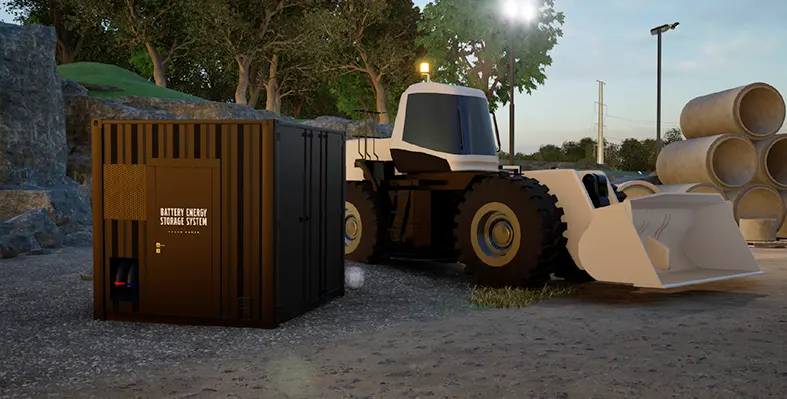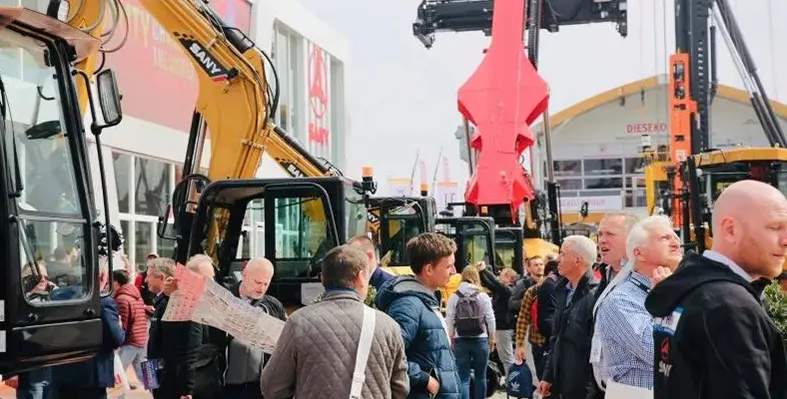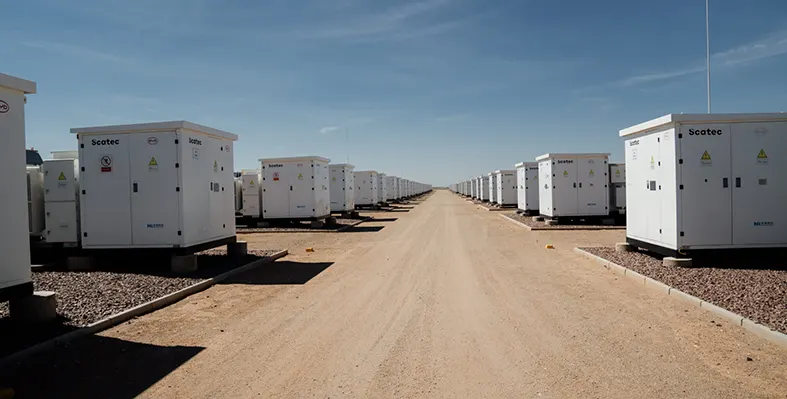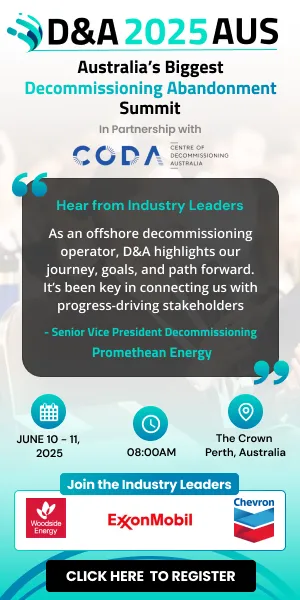
Wabtec and Rio Tinto SimFer reveal new locomotive to support Guinea’s largest mining infrastructure project. (Image source: Wabtec)
Wabtec Corporation and Rio Tinto SimFer, a joint venture among the Government of the Republic of Guinea, Rio Tinto, and Chalco Iron Ore Holdings (CIOH), recently marked a significant milestone with the unveiling of the first Evolution Series ES43ACi locomotive for the TransGuinéen Railway
This delivery is part of SimFer’s 2024 locomotive order, supporting rail operations critical to the Simandou high-grade iron ore project in southeastern Guinea, which is Africa’s largest mining and infrastructure development initiative.
Charles Zimmermann, global head of projects for Rio Tinto, stated, “This locomotive symbolizes a major step in our strategy to connect the Simandou project to the world, while bringing opportunities to the people of Guinea. We are proud to see the first SimFer locomotive roll off the production line and begin to make its way towards Guinea. This locomotive and the entire TransGuinéen Railway are critical for transporting the high-grade iron from the mine to the global market. We are grateful for Wabtec’s contribution and the role it is playing in this unique project.”
Transforming Guinea's infrastructure
The launch event brought together dignitaries from the governments of Guinea, India, and the United States, alongside leaders from Rio Tinto SimFer, Indian Railways, and Wabtec. Among the notable attendees were Minister Djiba DIAKITE, President of the Strategic Committee of the Simandou project, accompanied by Bouna SYLLA, Guinea’s Minister of Mines and Geology, as well as other members overseeing the project’s progress. The locomotive was presented in the striking blue and turquoise livery of La Compagnie de TransGuinéen, the joint venture company responsible for operating the Simandou Railway.
Mpilo Dlamini, Wabtec’s regional vice-president for sub-Saharan Africa, commented, “It is an honor to celebrate this milestone with our partners as we supply the advanced locomotives needed to meet the demands of the world’s largest untapped high-grade iron mine. This unveiling is a tribute to a global team that designed and built a locomotive specifically tailored for the Simandou project. These locomotives will efficiently facilitate the export of the mine’s critical minerals, while contributing to economic development in Guinea and providing access to services across the infrastructure corridor.”
The event also marked the first and largest export order of heavy-haul locomotives assembled at Wabtec’s facility in Marhowra, India. The ES43ACi model features a powerful 4,500-horsepower Evolution Series diesel engine, developed and manufactured in the United States, delivering industry-leading fuel efficiency and reliable performance in high-temperature conditions.
The Simandou mountain range is renowned for its exceptional iron ore deposits, with Rio Tinto estimating reserves of approximately 1.5 billion tonnes of high-grade ore. The broader project includes the construction of a 600 km multi-purpose railway linking the mine to a coastal port in the Forécariah prefecture, facilitating efficient mineral exports. This major international investment not only promises to unlock Guinea’s mineral wealth but also represents a transformative opportunity to accelerate economic growth and regional development throughout the country.





















